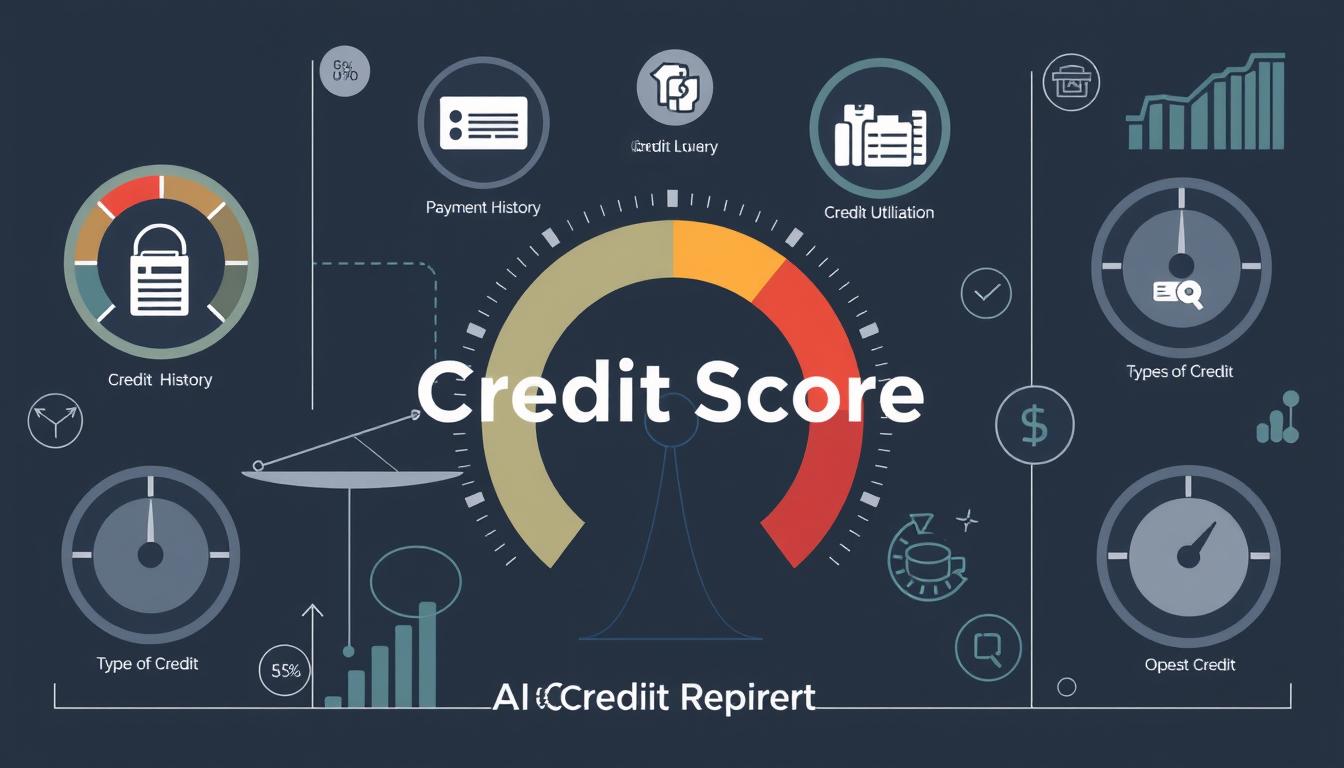Good oral health is vital, but dental procedures can be expensive. Dental financing can make treatments more affordable. Your credit score affects your ability to get dental financing.
The required credit score varies by lender and financing type. Different options have different credit score needs. Understanding these requirements helps you plan for your dental care.
Key Takeaways
- Dental financing options are available to help make necessary treatments more affordable.
- The credit score required for dental financing can vary depending on the lender and the type of financing you’re seeking.
- Understanding the credit score requirements for different dental financing options can help you determine your eligibility and plan accordingly.
- Improving your credit score can increase your chances of approval for dental financing and potentially secure better terms.
- Exploring alternative financing solutions can provide additional options if you don’t meet the credit score requirements for traditional dental loans.
Understanding Dental Financing
Dental financing helps people get essential dental care when they lack immediate funds. It makes quality dental care more affordable. Dental financing options and dental payment plans can ease the burden of dental care costs.
Why Dental Financing is Necessary
Dental treatments can be expensive, especially without dental insurance. Financing options let patients spread costs over time. This makes it easier to maintain good oral health.
Types of Dental Financing Options
Several dental financing options are available to patients:
- Dental loans: Let patients borrow money for dental treatments.
- Dental payment plans: Allow patients to pay in manageable installments.
- Dental insurance: Helps cover costs of various dental procedures.
It’s important to understand these options. Choose the one that fits your needs and budget best. This ensures you can access the dental care you need.
“Dental financing can make quality care more accessible and affordable for patients, allowing them to maintain their oral health without the burden of upfront costs.”
The Importance of Credit Scores
Your credit score is vital for dental financing. This three-digit number helps lenders assess risk when lending money. It greatly affects your chances of getting approved for dental financing.
A high credit score shows lenders you’re responsible with money. It means you pay bills on time and manage finances well. This can lead to better terms and lower interest rates.
A low credit score may worry lenders. It suggests you might miss payments or default. This can make getting dental financing harder or more expensive.
Understanding your credit score is key for dental financing approval. A good score opens doors to more options. It can make getting dental care easier and more affordable.
| Credit Score Range | Impact on Dental Financing |
|---|---|
| 750 and above | Excellent credit, typically qualify for the best financing terms and rates |
| 700-749 | Good credit, likely to be approved with favorable terms |
| 650-699 | Fair credit, may be approved but with higher interest rates or less favorable terms |
| 600-649 | Poor credit, may have difficulty getting approved or may only be offered high-interest financing |
| 599 and below | Very poor credit, likely to be denied for dental financing or only offered high-risk, high-cost options |
Your credit score greatly impacts your dental financing approval and offered terms. Knowing its importance helps you improve it. This boosts your chances of getting the dental financing you need.
Minimum Credit Score Requirements
Financing dental procedures requires different credit scores depending on the chosen option. Understanding credit score tiers helps determine your eligibility and potential loan terms.
Credit Score Tiers for Dental Financing
Here are the general minimum credit score requirements for dental financing:
- Excellent Credit: Scores of 760 or above may qualify for the best interest rates and terms on dental loans.
- Good Credit: Scores between 700 and 759 can still secure competitive dental financing options.
- Fair Credit: Scores from 640 to 699 may be eligible for financing, but with higher rates or less favorable terms.
- Poor Credit: Scores below 640 may face challenges in securing dental financing or qualify for less favorable conditions.
These credit score ranges are general guidelines. Individual lenders may have different criteria when evaluating dental loan applications.
Knowing the minimum credit score requirements helps assess your eligibility for dental financing. This knowledge empowers you to make informed decisions about your dental care needs.
Factors Affecting Credit Score Requirements
Your credit score is key in determining dental financing terms. Several factors influence the credit score needed for dental financing. Understanding these can help you navigate the process more effectively.
The type of dental financing you choose affects credit requirements. Personal loans may have stricter thresholds than in-house dental practice financing. Each lender’s specific policies can also impact credit score requirements.
Your financial history plays a significant role. Lenders examine your credit report, payment patterns, and debt-to-income ratio. Credit utilization, payment history, and credit history length all contribute to financing requirements.
The specific dental procedure you’re financing can affect requirements. Complex treatments may need a higher credit score. They’re often seen as a greater financial risk.
“Understanding the factors that influence credit score requirements is crucial for securing the right dental financing option.” – Dr. Sarah Johnson, Dental Financial Expert
Being aware of these factors can help you prepare better. It increases your chances of securing the financing for your oral health goals.

Improving Your Credit Score
Is your credit score too low for dental financing? Don’t worry! There are ways to boost it over time. By using proven tactics, you can increase your chances of getting better financing terms.
Tips for Boosting Your Credit Score
Here are some practical tips to help you improve your credit score and credit score boosting for your dental financing needs:
- Monitor your credit report regularly and dispute any errors or inaccuracies you find.
- Make all your payments on time, including utilities, credit card bills, and other financial obligations.
- Keep your credit card balances low, aiming for a utilization rate of under 30% of your available credit limit.
- Avoid opening new credit accounts unless necessary, as each hard inquiry can temporarily lower your credit score.
- Become an authorized user on a credit card with a long, positive payment history to benefit from the account’s age and credit limit.
- Consider requesting credit limit increases from your credit card issuers to improve your credit utilization ratio.
- Consult with a credit repair professional if you need additional guidance on improving your credit score for dental financing.
Using these strategies can help boost your credit score. It will improve your chances of getting dental financing. Remember, patience and consistency are key to success.
Applying for Dental Financing
Preparing for dental financing can make the application process smooth. Having the right documents and information ready improves your chances of approval. Let’s explore the typical requirements for dental loans and financing options.
Documents and Information Needed
To apply for dental financing, you’ll need to provide several documents and details. These items help lenders assess your eligibility for a dental loan.
- Personal Identification – This may include a valid driver’s license, passport, or other government-issued ID.
- Proof of Income – Recent pay stubs, tax returns, or bank statements demonstrating your steady income source.
- Dental Treatment Plan – A detailed estimate or treatment plan from your dentist, outlining the procedures and associated costs.
- Credit Information – Your credit score, credit report, and any relevant credit history details.
- Contact Information – Your current address, phone number, and email address.
The specific dental loan requirements may vary depending on the lender. Review their application guidelines carefully before applying. Being prepared with the necessary documents for dental financing can speed up the process.
Having these items ready can boost your chances of getting the funding you need. The dental financing application process becomes easier when you’re well-prepared.
| Document | Description |
|---|---|
| Personal Identification | Valid driver’s license, passport, or other government-issued ID |
| Proof of Income | Recent pay stubs, tax returns, or bank statements |
| Dental Treatment Plan | Detailed estimate or treatment plan from your dentist |
| Credit Information | Credit score, credit report, and credit history details |
| Contact Information | Current address, phone number, and email address |

“Preparing the necessary documents and information beforehand can significantly streamline the dental financing application process.”
What Credit Score Is Needed For Dental Financing?
Your credit score is key for dental financing eligibility. It impacts loan approval and terms. Knowing the requirements helps plan your financial strategy.
Most dental financing requires a credit score between 650 and 700. This range can change based on the lender and financing type.
Lenders generally categorize credit scores into the following tiers:
- Excellent credit score (760-850): Individuals with excellent credit scores are often eligible for the most favorable financing terms, including lower interest rates and higher loan amounts.
- Good credit score (700-759): Borrowers with good credit scores can also qualify for dental financing, but they may face slightly higher interest rates or lower loan amounts compared to those with excellent credit.
- Fair credit score (650-699): Individuals with fair credit scores may still be able to obtain dental financing, but they may face more scrutiny and potentially less favorable terms.
- Poor credit score (below 650): Borrowers with poor credit scores may have a more difficult time securing dental financing or may only qualify for loans with high-interest rates and unfavorable terms.
Dental financing credit score requirements vary by lender. Some have lenient standards. Others have stricter guidelines for the credit score needed for dental loans.
Improving your credit score can boost your chances of getting good financing terms. This can help you afford needed dental care and maintain oral health.
Choosing the Right Financing Option
Selecting the best dental financing option requires considering various factors. Compare dental financing options to find the most suitable solution. This process helps secure the best choice for your oral healthcare expenses.
Interest rates are a crucial aspect to consider. Shop around to compare costs from different financing providers. Evaluate repayment terms carefully to understand their impact on your monthly payments.
Consider the overall cost of the financing option. Look beyond just the interest rate. Calculate the total loan cost over the repayment period. Selecting dental financing that fits your budget ensures a manageable solution for your dental care.
“Choosing the right dental financing option is crucial for maintaining your oral health without compromising your financial well-being.”
Understand the various types of dental financing options available. These include in-office financing, third-party lenders, and credit cards. Each option has unique features and eligibility requirements.

Your credit score, budget, and long-term financial goals should guide your decision. Carefully compare dental financing options to make a confident choice. This approach supports both your oral health and financial well-being.
Managing Dental Financing Payments
Keeping up with dental financing payments is vital for a good credit history. It helps avoid late fees and penalties. Let’s explore strategies to manage your dental financing repayment effectively.
Strategies for Timely Repayment
A solid plan for managing dental loan payments can boost your financial health. Here are some helpful strategies to consider:
- Create a Payment Schedule: Know your payment due dates, amounts, and methods. Set up automatic payments or reminders to stay on track.
- Prioritize Dental Financing Payments: Make dental loan payments a top priority in your monthly budget. Pay these before other expenses to ensure timeliness.
- Communicate with Your Lender: If you expect payment difficulties, contact your lender. They might offer flexible options or help create a new repayment plan.
- Explore Consolidation or Refinancing: Consider consolidating or refinancing multiple dental loans. This may lower interest rates and monthly payments.
- Negotiate Payment Terms: Some lenders might adjust repayment periods or monthly amounts. This can better fit your financial situation.
These strategies can help you manage dental financing repayment effectively. They’ll also help maintain a healthy financial standing.
| Repayment Strategies | Benefits |
|---|---|
| Create a Payment Schedule | Ensures timely payments and helps you stay organized |
| Prioritize Dental Financing Payments | Helps you allocate funds and avoid late or missed payments |
| Communicate with Your Lender | Allows for flexible payment options and revised repayment plans |
| Explore Consolidation or Refinancing | Can potentially lower interest rates and monthly payments |
| Negotiate Payment Terms | Provides an opportunity to adjust the repayment period or installment amounts |
Using these strategies can help you manage your dental financing repayment well. They’ll support your overall financial health and stability.
Alternative Financing Solutions
Alternative solutions can make dental care more affordable. These approaches offer flexible payment plans, discounted services, and community-based support. They address the challenge of dental care affordability in innovative ways.
Dental School Clinics
Dental schools often run clinics providing low-cost services to the public. Supervised dental students offer care at a fraction of private practice costs. These clinics are great for those seeking affordable dental payment options.
Dental Savings Plans
Dental savings plans offer discounts on various dental services. Members pay yearly for access to a network of dentists with reduced rates. This can be cheaper than traditional dental insurance for those without coverage.
Community-Based Programs
Nonprofits and community health centers may offer dental care assistance programs. These can include free or low-cost services, payment plans, and other resources. Exploring local initiatives can help find alternative dental financing solutions.

Patients can find creative ways to make dental care more affordable. Dental school clinics, savings plans, and community programs offer innovative solutions. These dental payment options make high-quality services more accessible.
Seeking Professional Advice
Dental financing can be complex. Seeking expert guidance is beneficial. Professional advice can help you navigate your dental financing options effectively.
A financial advisor for dental care can offer personalized recommendations. They can help you understand financing options and assess credit requirements. These experts can develop a plan to manage your dental expenses.
Consulting with your dental healthcare providers is also advisable. Your dentist can offer insights into necessary treatments and procedures. They can guide you towards suitable financing options for your oral health needs.
If you have credit concerns, consider speaking with a credit counselor. They can help you manage your credit and improve your score. Credit counselors can also explore alternative financing solutions for you.
Financial advisors, dental professionals, and credit counselors offer valuable expertise. Their guidance can help you make informed decisions about your oral health. You’ll feel more confident navigating dental financing with their support.
Conclusion
Credit score requirements for dental financing vary widely among lenders and options. Understanding how credit scores affect dental care access can help you improve your chances of getting needed services.
Our dental financing options review shows the importance of comparing various solutions. These include payment plans, personal loans, and dental credit cards.
Carefully evaluate terms, interest rates, and repayment schedules for each option. This ensures you can afford the financing long-term.
Manage your credit actively and seek expert advice to navigate dental financing complexities. Explore alternative solutions to prioritize oral health without harming your finances.
Remember, your credit score isn’t just a number. It can greatly affect your access to quality dental care.

